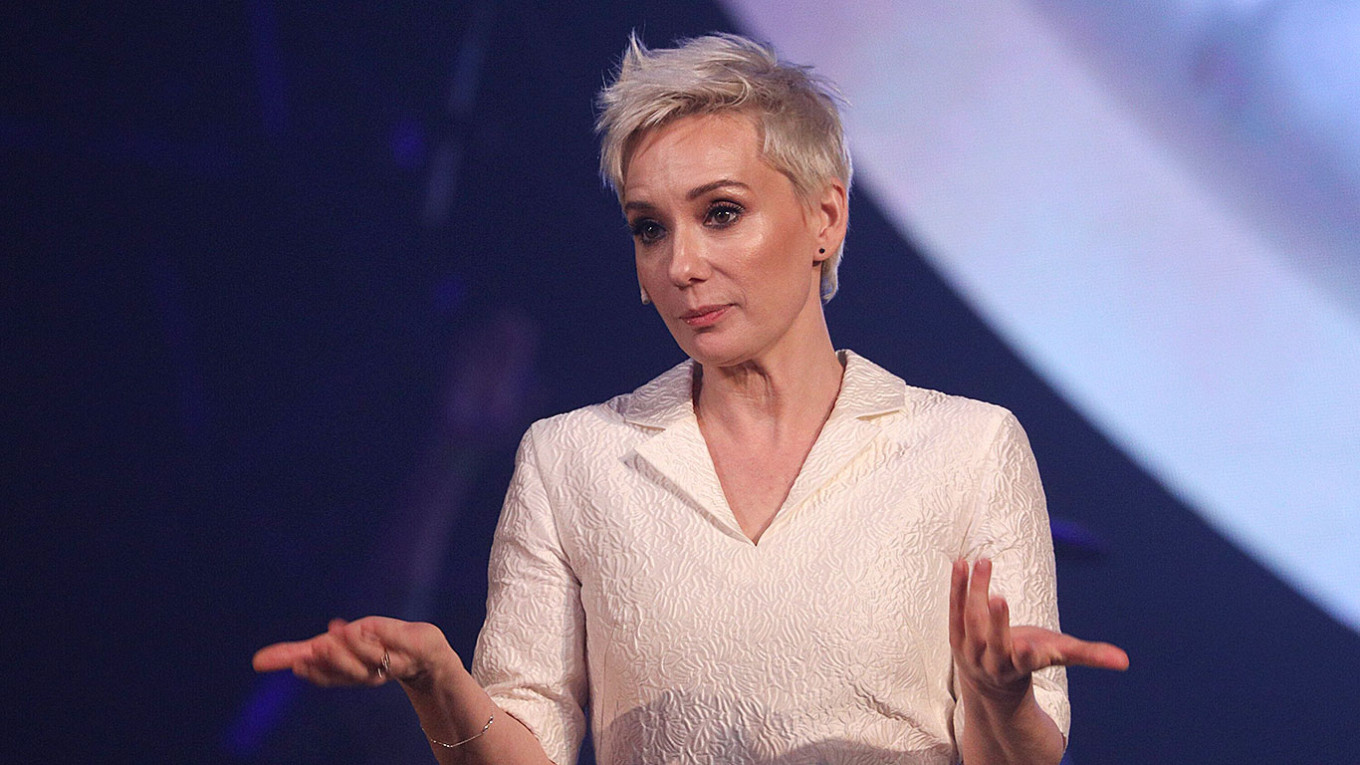The Russian stage and screen actress Chulpan Khamatova told Ekaterina Gordeyeva in an interview released on Monday that she would not be going back to Russia.
Khamatova, who heads the Gift of Life charity foundation, was abroad when Russia began its attack on Ukraine. “For the first few days I didn’t know what to do,” she said in the interview. At first I just wanted to stay some place and wait for it to end, but then I was led to believe that it might not be safe for me to return. I’m in Riga for now. I am certainly not a traitor. I love my homeland very much,” she said.
Khamatova is one of Russia’s most celebrated actresses who has acted in dozens of films and television series — most recently playing the lead role in the screen version of Guzel Yakhina’s novel, “Zuleikha.” She also plays Raisa Gorbachev in the hit play “Gorbachev” at the Moscow Theater of Nations.
She is just one of dozens of Russian cultural figures who have left the country since the war began.
Earlier this month the music director of the Bolshoi Theater, Turgan Sokhiev, resigned his post in Moscow and in Toulouse, France. He wrote that he felt he was being forced "to choose between my beloved Russian and beloved French musicians” and so “decided to resign from my positions at both the Bolshoi in Moscow and Orchestre National du Capitole de Toulouse.”
At the same time two foreign ballet dancers at the Bolshoi, Jacopo Tissi and David Motta Soares, put in their resignations.
This was followed by the announcement that Bolshoi prima ballerina Olga Smirnova left for the Dutch National ballet.
Russian television has also lost several of its best-known on-screen personalities: Channel One colleague Zhanna Agalakova quit her job as Europe correspondent for Channel One, and both Lilia Gildeyeva and Vadim Glusker quite NTV. Gildeyeva had worked at the channel since 2006, and Glusker had been there almost from the start, for 30 years.
Dmitry Linkin, the head designer for Channel One for 24 years, also quit. “I was taught that human life is invaluable,” he said.
A Message from The Moscow Times:
Dear readers,
We are facing unprecedented challenges. Russia's Prosecutor General's Office has designated The Moscow Times as an "undesirable" organization, criminalizing our work and putting our staff at risk of prosecution. This follows our earlier unjust labeling as a "foreign agent."
These actions are direct attempts to silence independent journalism in Russia. The authorities claim our work "discredits the decisions of the Russian leadership." We see things differently: we strive to provide accurate, unbiased reporting on Russia.
We, the journalists of The Moscow Times, refuse to be silenced. But to continue our work, we need your help.
Your support, no matter how small, makes a world of difference. If you can, please support us monthly starting from just $2. It's quick to set up, and every contribution makes a significant impact.
By supporting The Moscow Times, you're defending open, independent journalism in the face of repression. Thank you for standing with us.
Remind me later.






